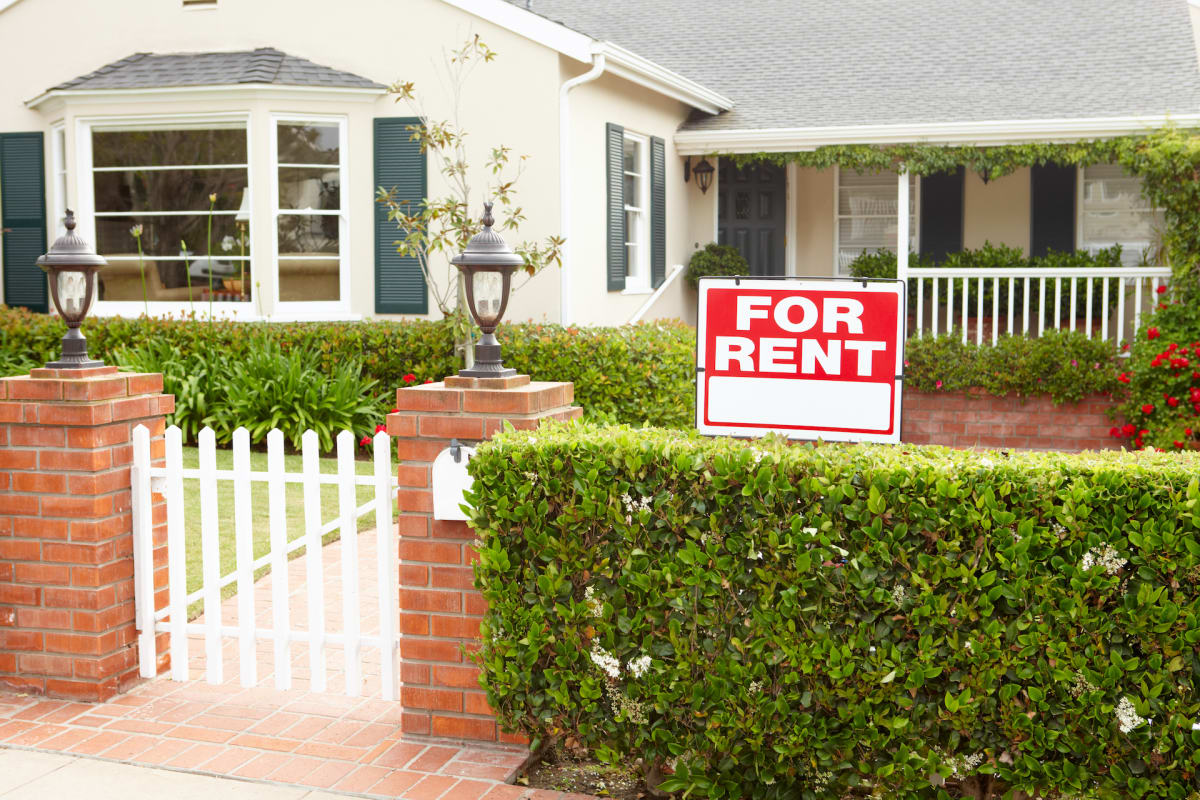
With an estimated 108 million Americans renting residential properties, there’s bound to be some hiccups in the rental agreement process.
Don’t Miss: Here’s How To Negotiate a Better Deal With Your Landlord
One of the most vexing issues comes at the end of the rental process, when you leave an abode and try to get your security deposit back. Way too may U.S. renters are lax on the security deposit, both on the front end and the back end of the deposit deal – and that oversight can cost some big bucks on lost deposit funds.
“It's incredibly hard to quantify security deposit refunding and it's so fragmented across thousands of landlords that it's hard to know the extent of the problem,” said Jack Prenter, chief executive officer at DollarWise, a personal finance advisory platform. "But anecdotally the problem is severe and given the poor financial state of consumers, they can't afford to lose hundreds or even thousands of dollars from their security deposit.”
One more recent log on the fire is the state of the recent real estate economy, which tilts the security payments table in the favor of property owners.
“Some landlords probably bought real estate in the last few years when home prices were high,” said Derek Sall, founder of Life and My Finances, a money management publishing platform.
In this economy, margins are slim, and cash flow is tight – that’s a downbeat scenario for renters looking to recoup their security deposit.
“If a renter leaves, that's a prime opportunity to keep some cash in the account,” Sall said. “So naturally, landlords are looking more closely at the condition of the house upon a renter leaving--looking for any reason to keep all (or at least a large portion) of the security deposit.”

Getty Images
Getting Square With Your Landlord on Security Deposits
Whether you left an unpaid utility bill or you didn’t bother meeting with your landlord for an exit inspection, costs can add up so fast you may not get any of your security deposit back.
How to fight back? Real estate and rental experts advise taking these actions.
Check your state law on rental security deposits. In recent years, more US states are backing renters with favorable residency regulatory laws – security deposits included.
“In New York, the HSTPA (Housing Stability and Tenant Protection Act) was passed in 2019,” said Nicole Beauchamp, a licensed associate real estate broker at Engel & Völkers in New York City. “One of the things in this law addresses security deposits, a landlord can only ask for one month of security and they must return within 14 days.”
Beauchamp tells her tenants and landlords that, at the start of the lease, document the condition of the apartment, with photos and videos, and the same at move-out.
“At least in New York tenants now have that law as recourse,” she said.
Be an inspector. Make sure you have a detailed move-in inspection that accurately documents the condition of the property.
“When you move out, have your home clean and ready for an inspection; anything damaged you do not want to be held responsible for fix,” said Bruce Ailion, a realtor and attorney at RE/MAX Town and Country. “Leave the property as you acquired it subject to ordinary wear and tear, and do a move-out inspection with the landlord or landlord's rep present to document the condition on move-out. Have the landlord sign the move-out and document any items where you're held responsible."
Leverage the law when needed. In Georgia, the law requires a move-in before you pay a deposit.
“It requires the landlord to do a move-out inspection and document any changes to the tenant and return the balance of the deposit within 30 days,” Ailion noted. “Failure to do this allows you to go to court, and in Georgia, a tenant is entitled to triple damages and attorney fees as a matter of law. This is a very powerful tool to recover a deposit.”
Don't Be Afraid to Go to Court
Some renters may be hesitant to go up against a deep-pocketed landlord in court, but that’s a mistake.
“If you’re in the right and can prove it do not be afraid to file a lawsuit,” Ailion added. “Landlords do not like litigation and judges do not like greedy or unfair landlords.”
If you do go to court, expect to file in the lowest level court, typically a small claims court that will not require you to have an attorney and is less formal than higher-level courts.
“In all probability, the landlord will settle rather risking an adverse ruling,” Ailion said.
Keep your cool. Don’t say, text, or write anything you would be embarrassed or disfavored in a courtroom. “Also be persistent,” Ailion said. "Put everything in writing, and use certified mail.”
“Doing all these things puts you in the best position to receive a refund,” he added.







